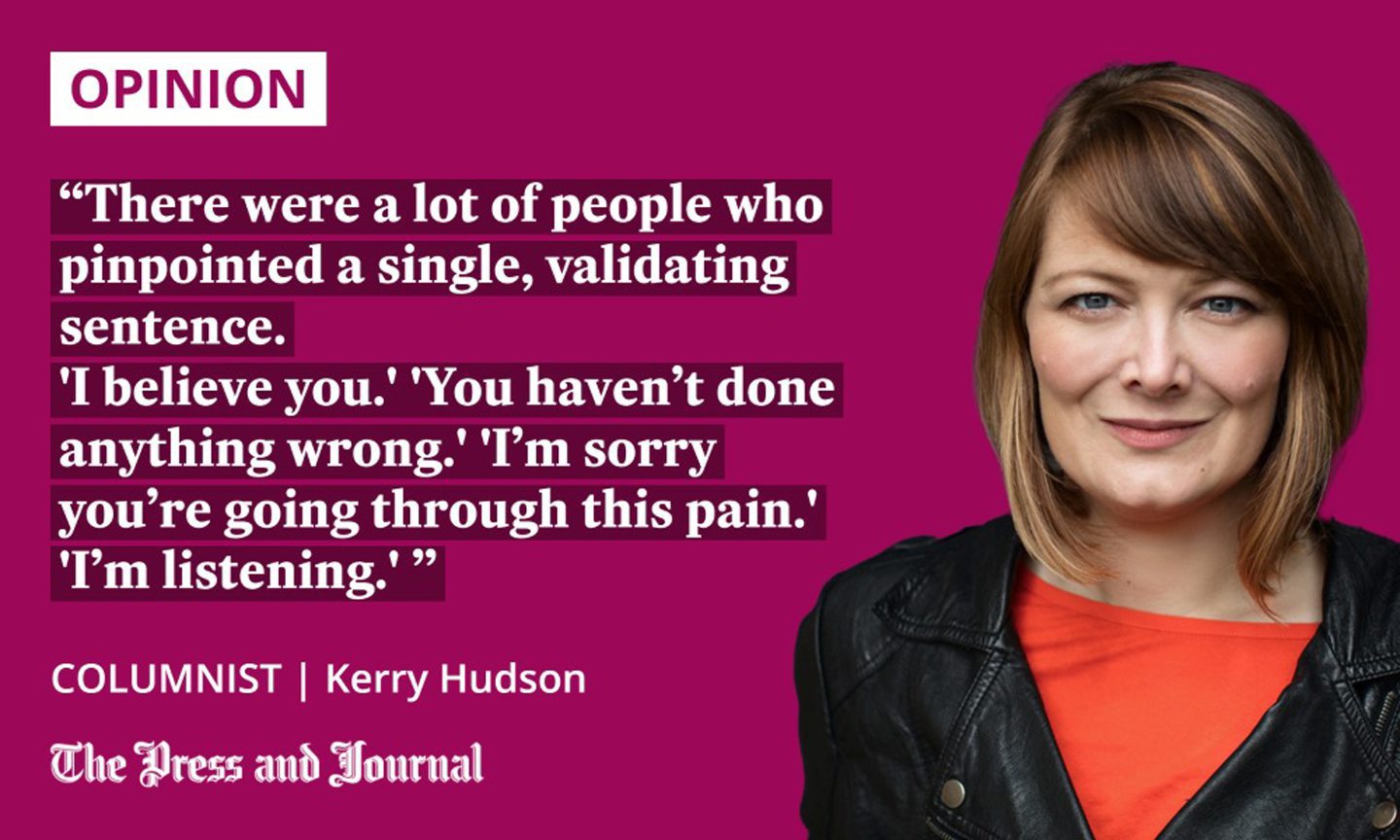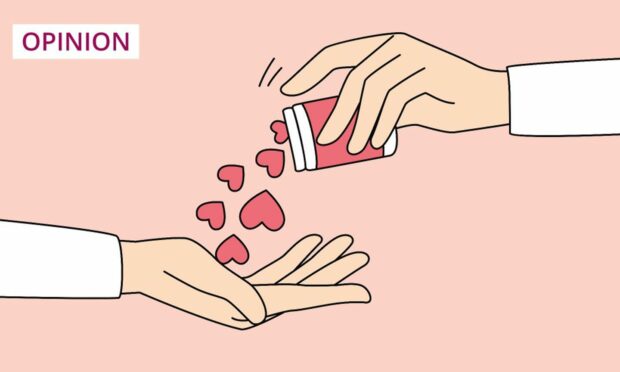This week, two NHS doctors made me cry.
I was speaking to both on the phone after hours. The first, my brand new GP, took time to call me once the surgery was closed. The second, an NHS 24 doctor, called me late at night.
I’m overjoyed to be back home in Scotland but, honestly, I have limped over the finish line health-wise. I arrived here two days before I was due to have desperately-needed airway surgery in the Czech Republic, dosed up to my eyeballs on high-strength prednisone steroids, trying not to think about my bones becoming mulch as a side effect, or how long it will take to wean myself off them.

I also arrived, as you might imagine, with a fair amount of medical anxiety. When your current health service has failed you so acutely that you have to move a whole family to another country, there’s not a lot of trust left.
So, as you might also imagine, I’m quite used to crying in front of doctors.
I had a pandemic pregnancy after infertility, and often had my medical appointments alone. I cried when I tripped over in hospital grounds at nine months pregnant and people actually walked past me lying there. I cried when I found out I might have to give birth without my husband, or even a face-masked translator, in a foreign hospital.
When I was told about my incurable airway condition and also that I possibly had thyroid cancer and was sent to book a biopsy and blood test, the nurse shouted full force at me in front of a packed waiting room because I did not speak enough Czech to make myself understood.
A generous and kind lie
You can bet I’ve bawled my wee eyes out a lot these last few years. As an immigrant who struggled with the language, I became used to feeling like an inconvenience, to feeling disenfranchised by a medical system not set up for someone like me, however urgent my need.
So, this week, two NHS doctors made me cry. Both of these women spoke in the accent of my home and my past and my future.
My GP said simply: “We’ll get this sorted out. I can’t imagine the stress you’ve been under.” My throat swelled, eyes stung, and I nodded dumbly down the phone, because it was true and I felt heard.
The second doctor told me: “I completely understand why you must be feeling terrible.” When I apologised to her for having to call me so late at night, she said: “Don’t you worry. I’d just be twiddling my thumbs anyway.” This is definitely not true. We both knew this. But it was such a generous, kind lie.
Often all we need is to be listened to
Knowing my experience could not be unique, I took to Twitter and asked others to share the most comforting things medics and frontline staff had said to them. At the time of writing, over 550 people have responded. I highly recommend you read the whole heartbreaking, life-affirming thread.
They told me about nurses allowing them to sit and listen to their healthy baby’s heartbeat for a little longer, knowing they’d lost pregnancies previously. They talked of holding hands quietly.
Often what we need is just to be seen, to be acknowledged, to be listened to. To be validated as humans going through something hard
There’s the doctor’s receptionist who came to a patient’s home and walked them down to the surgery when they were having anxiety about leaving the house, and GPs who called every fortnight when they realised there was no family support.
There were a lot of people who pinpointed a single, validating sentence. “I believe you.” “You haven’t done anything wrong.” “I’m sorry you’re going through this pain.” “I’m listening.”
I was told for two years that my progressively worsening neurological symptoms and pain, were in my head – when in fact, the cause was literally in my brain and needed surgery
Prior to diagnosis, I felt like I was on the verge of being broken
My GP said “I believe you”
— Doctor May Jay (@DoctorMayJay) August 20, 2022
So many who shared their stories told me they’d never forgotten that moment, or that person. Many GPs and medics said the responses reminded them how important those small things are. One imminent medical student said: “Amongst all the crap and worry about starting med school in a seemingly broken NHS in September, this thread is so uplifting.”
It’s true, there is evidence that the NHS is under unbearable strain, the staff already performing superhuman feats. But I hope reading this helps some of them to know that – although every patient would wish for quicker test results, lower waiting times, state of the art treatment – often what we need is just to be seen, to be acknowledged, to be listened to. To be validated as humans going through something hard.
Patients are deeply grateful
This has been a strange year, full of anxiety and frustrations and the many joys that being given a second chance at life can give.
I have learned to live in the moment, just as my toddler does. To try to acknowledge the hard physical and mental days, but to also find joy in a good piece of cake, a funny film, a sleeping dog on my feet, or my child’s discovery that leaves magically change colour and then spiral down from trees like confetti.
I had read in my notes that my then undiagnosed endo was ‘likely seeking drugs’… it broke me. years later a new GP apologised and said ‘we’re humbled that you trust us with your care.’
— Lindsay the Bruce (@LLBruce) August 20, 2022
I’ve done OK. I’ve tried to veer away from “why me, why now?” thoughts and stick to: “It’s happening – what’s in my control?”
Now I’ve limped over the finish line to Scotland for treatment, simply knowing that I will speak to someone who is kind and empathetic, who understands that this is difficult, is a balm. I hope our medical staff know how deeply grateful we patients are every time someone takes a minute to dispense this vital medicine.
Kerry Hudson is an Aberdeen-born, award-winning writer of novels, memoirs and screenplays


Conversation